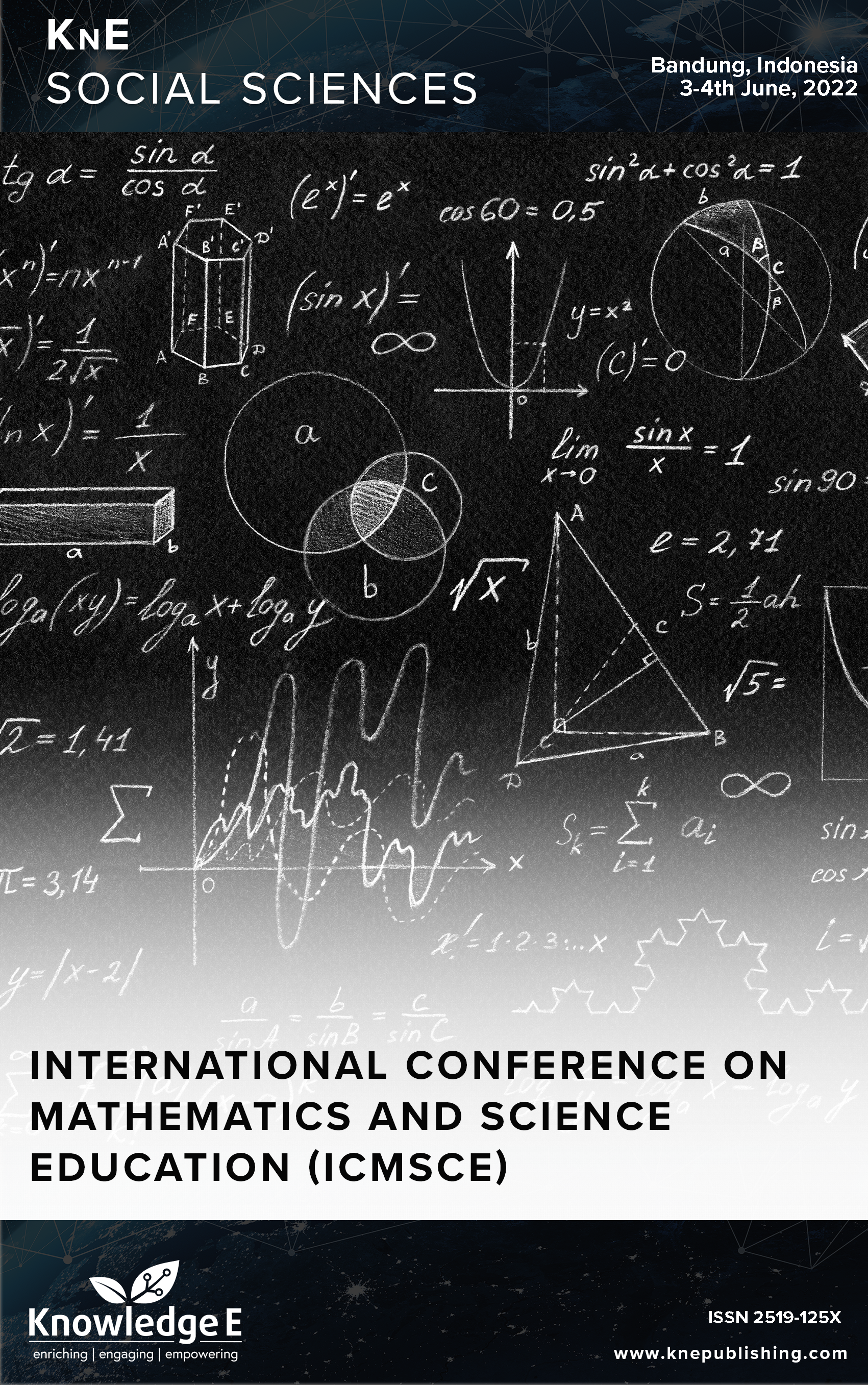Needs Analysis for the Development of Science e-Modules Assisted with Kvisoft Flipbook Maker on the Basic of Project Based Learning on Heat and Transfer Materials to Improve Creative Thinking Ability in the Pandemic Period
DOI:
https://doi.org/10.18502/kss.v9i8.15571Abstract
Creative thinking is a high-order thinking skill that is considered to be an important skill to succeed. Creative thinking abilities include fluency in thinking, flexibility of thinking, originality of thinking, and detailed thinking (elaboration). The lack of teaching materials on the topic of heat transfer and the inability to think creatively about the topic negatively affect students. Therefore, this study aimed to analyze the need for the development of an e-module using the Flipbook Maker application. The need analysis for the e-module was analyzed in line with creative thinking abilities to support online learning. This study used a qualitative method, with the research subjects being teachers and students of grade VII of Junior High School in Sukoharjo. Data collection techniques employed were questionnaires and interviews, in which the data were then analyzed descriptively. The study revealed that students’ creative thinking abilities were still low on indicators of flexibility and originality. For these reasons, project-based learning (PJBL) is a learning model that can be applied to improve students’ creative thinking abilities. In addition, teachers and students need e-modules to support the online learning process. Thus, this research can be elaborated by developing a natural science e-module assisted by a Flipbook Maker based on PJBL to improve students’ creative thinking abilities.
Keywords: Science e-Modules, Project Based Learning, Creative Thinking Ability
References
Gencer AA, Gonen M. Examination of the effects of reggio emilia based projects on preschool children’s creative thinking skills. Procedia Soc Behav Sci. 2015;186:456– 60. DOI: https://doi.org/10.1016/j.sbspro.2015.04.120
Heilman G, Korte WB. The Role of Creativity and Innovation in School Curricula in the EU27 A Content Analysis of Curricula Documents. Luxembourg: Publication Office of the European Union; 2010.
Novitasari N, Okamoto N, Rhee J. Defining, teaching, and assessing problem solving skill. 2004.
Amtiningsih S, Dwiastuti S, Sari DW. Peningkatan kemampuan berpikir kreatif melalui penerapan guided inquiry dipadu brainstorming pada materi pencemaran air. Proceeding Biology Education Conference. 2016;13(1):868–872.
Nurhamidah D, Masykuri M, Dwiastuti S. Profile of senior high school students’ creative thinking skills on biology material in low, medium, and high academic perspective. J Phys Conf Ser. 2018;1006:012035. DOI: https://doi.org/10.1088/1742-6596/1006/1/012035
OECD. PISA 2012 Result in Focus. Programme for International Student Assessment. OECD Publishing; 2014.
Dumitrescu C, Olteanu RL, Gorghiu LM, Gorghiu G. Learning chemistry in the frame of integrated science modules – romanian student’s perception. Procedia Soc Behav Sci. 2014;116:2516–20. DOI: https://doi.org/10.1016/j.sbspro.2014.01.603
Anwar MN. S. Shamim-ur-Rasool, and R. Haq, “A comparison of creative thinking abilities of high and low achievers secondary school student.,”. International Interdisiplner Journal of Education. 2012;1(1):3–8.
Santiago KJIT, Hope KS. Project Based Learning: Inspiring Middle School Students to Engage in Deep and Active Learning. NYC Department of Education. 2009.
Goodman B, Stivers J. Project-Based Learning. Educational Psychology. ESPY. 2010;505. DOI: https://doi.org/10.3726/978-1-4539-1279-9
V. dan K.P. Boondee and S.-N. Worawat, “A Learning and teaching model using Project-Based Learning (PjBL) on the web to promote cooperative learning.,”. Eur J Soil Sci. 2011;21(3):498–506.
Hedges LV. Distribution theory for glass’s estimator of effect size and related estimators. J Educ Stat. 1981;6(1):107–28. DOI: https://doi.org/10.3102/10769986006002107
Pizzingrilli P, Valenti C, Cerioli L, Antonietti A. Creative thinking skills from 6 to 17 years as assessed through the WCR test. Procedia Soc Behav Sci. 2015;191:584–90. DOI: https://doi.org/10.1016/j.sbspro.2015.04.498
Lestari T. Peningkatan hasil belajar kompetensi dasar menyajikan contohcontoh ilustrasi dengan model pembelajaran project based learning dan metode pembelajaran demonstrasi bagi siswa kelas XI Multimedia SMK Muhammadiyah Wonosari. Skripsi. Program Studi Pendidikan Teknik Informatika Fakultas Teknik Universitas Negeri Yogyakarta. Yogyakarta; 2015. p. 15–16.
Villagonzalo EC. Process oriented guided inquiry learning : an effective approach in enhancing students ’ academic performance. Presented at the DLSU Research Congress. De La Salle University, Manila, Philippines 2014. p. 1–6
Rezeki RD, dkk. Penerapan metode pembelajaran Project Based Learning (PjBl) disertai dengan peta konsep untuk meningkatkan prestasi dan aktivitas belajar siswa pada materi redoks Kelas x-3 SMA Negeri Kebakkramat tahun pelajaran 2013/2014. Jurnal Pendidikan Kimia. 2015;4(1):74-81.

